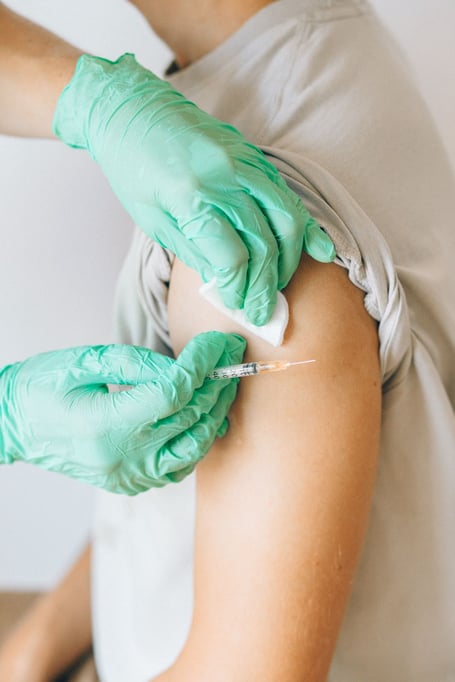The UK Health Security Agency (UKHSA) has reported that this year’s flu vaccine is offering strong protection for both children and adults, even as a newly evolved strain drives an early start to the flu season.
Early data from UKHSA’s 2025/26 surveillance shows the vaccine is between 70 and 75 per cent effective at preventing hospital visits among children aged two to seventeen, and 30 to 40 per cent effective in adults.
According to the UKHSA the results are particularly encouraging given the dominance of a drifted influenza A(H3N2) strain, known as subclade K, which has become the main cause of flu cases in England. Although flu vaccine effectiveness can vary from year to year, the current levels are consistent with typical seasons and suggest the enhanced vaccines continue to perform well, even as the virus evolves.
Dr Jamie Lopez Bernal, Consultant Epidemiologist for Immunisation at UKHSA, said the results were reassuring.
“These results provide reassuring evidence that this season’s flu vaccines currently offer important protection to children and adults, despite concerns about the new subclade,” he said. “The high vaccine effectiveness in children strengthens the case for ensuring all eligible young people get vaccinated. When more children are protected, it helps stop the spread of flu to others around them.”
Dr Lopez Bernal added that vaccination remains the best defence against serious illness: “Whatever strains circulate this winter, we can be confident the vaccine will still help protect those most vulnerable from developing serious illness and being hospitalised. We strongly encourage all those eligible to get vaccinated against flu as soon as possible.”
UKHSA’s data shows that flu activity began earlier than usual this year, with infections first rising in teenagers and young adults before spreading to younger children. Almost all recorded cases have been influenza A, with 84 per cent identified as the H3N2 subtype.
The UK flu vaccination programme uses advanced vaccines tailored to different patient groups, including enhanced formulations for older adults and nasal spray vaccines for children. Experts say high protection rates among younger age groups also help reduce transmission, offering indirect protection to more vulnerable populations such as the elderly.
Dr Lopez Bernal also reminded people to maintain good respiratory hygiene as an extra precaution. “Anyone with symptoms, including high temperature, cough, or feeling tired or achy, should minimise contact with others, especially those who are vulnerable. Wash hands regularly, ensure indoor spaces are well ventilated, and if you need to go out with symptoms, consider wearing a face covering,” he said.
Flu vaccination is available to all children aged two to seventeen, adults aged sixty-five and over, pregnant women, and people with certain long-term health conditions.
Health officials are urging everyone to get vaccinated. Vaccination remains the most effective way to protect against flu. Eligible groups include children aged 2-17, adults aged 65 and over, pregnant women, and those with certain health conditions.
You can book a Flu Vaccine by visiting the NHS website here: https://www.nhs.uk/book-a-flu-vaccination

.jpeg?width=209&height=140&crop=209:145,smart&quality=75)


Comments
This article has no comments yet. Be the first to leave a comment.